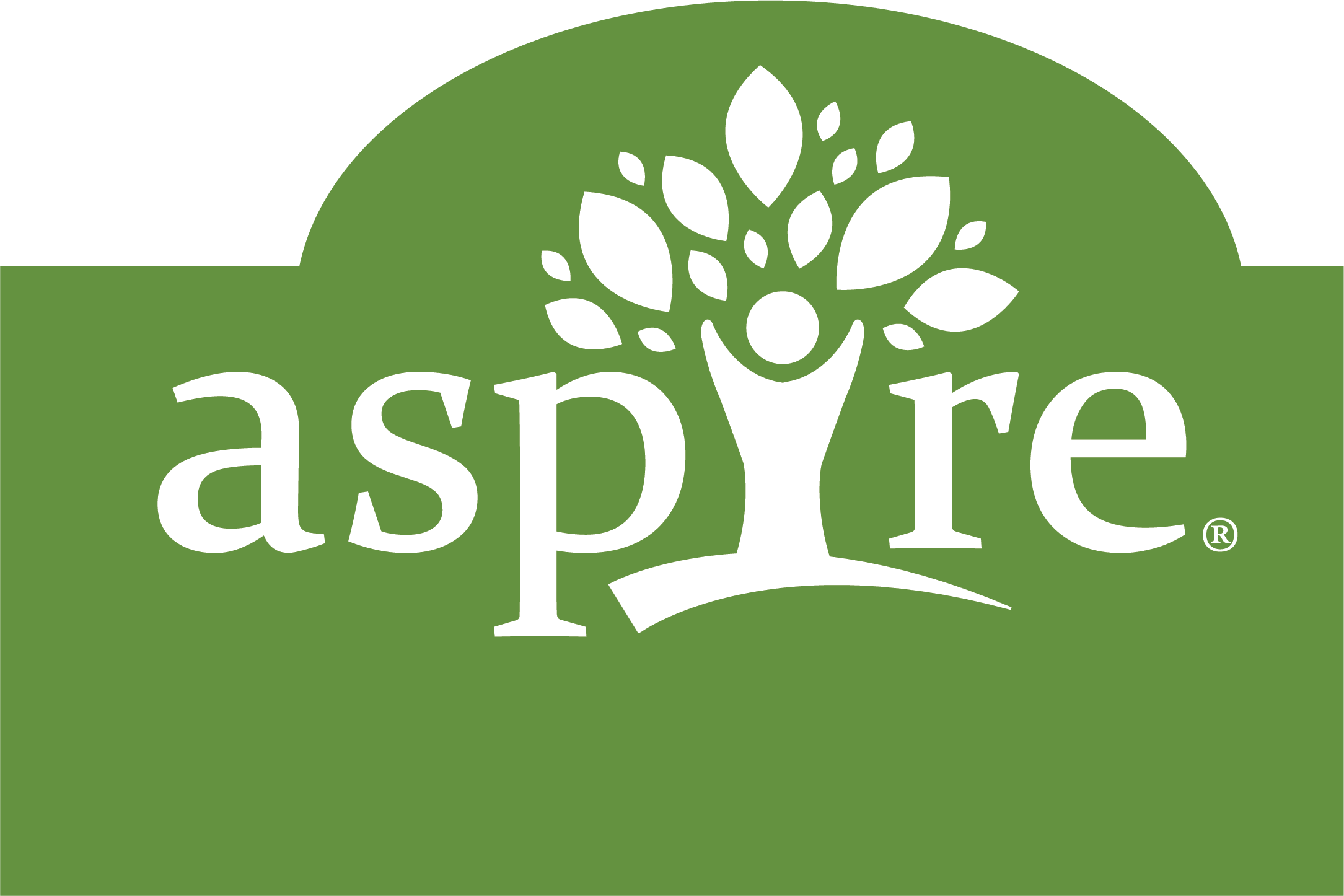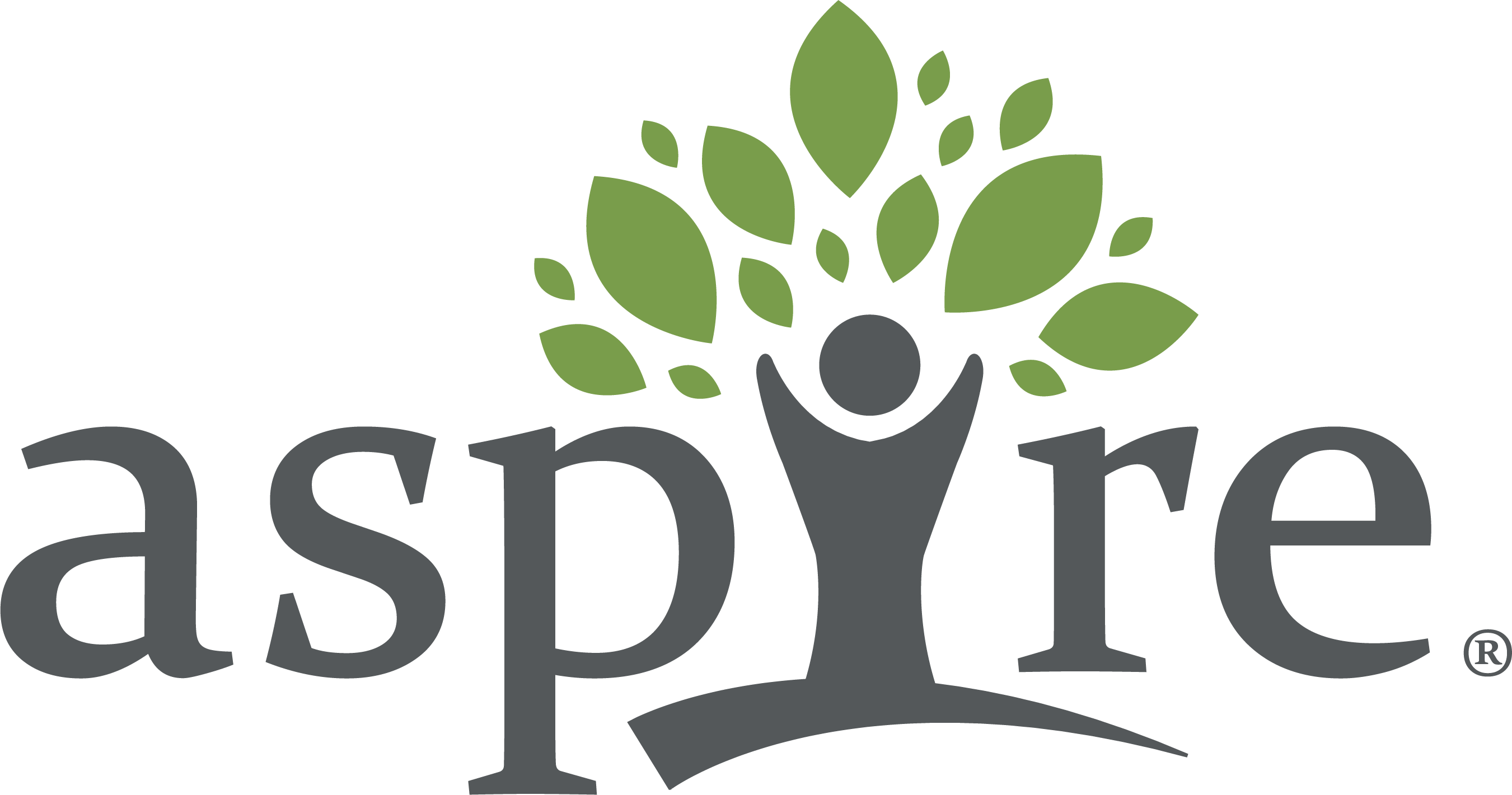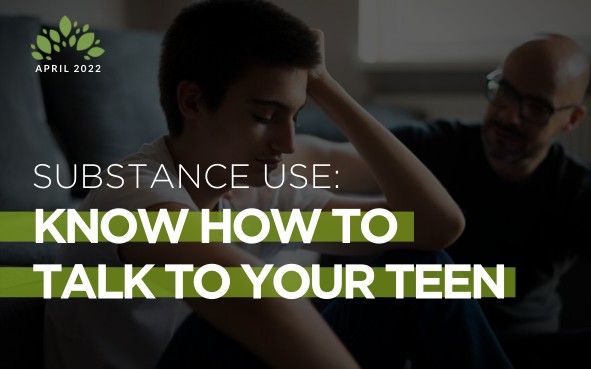Substance Use: Know How to Talk to Your Teen
As parents, we are aware of all the mistakes we made as teenagers and want to help make sure our teens don’t make the same mistakes, or even worse ones. That makes us tend to give our children as much advice as possible, but from their point of view it usually comes across as lecturing and being judgmental. So how do you impart your wisdom and educate your teenager about the dangers of substance use without alienating them? Aspire Counseling Services offers some suggestions for the best way to approach this important discussion with your teens.
Have a Casual Conversation
Your first discussion with your young teen, or even pre-teen, about the dangers of drugs should begin as a casual conversation. To show that you value their knowledge and thoughts, one great way for beginning the discussion is by asking them a simple question – “What do you know about marijuana?” (or alcohol, or fentanyl, or any drug, etc.). Listen without judgement. From there ask questions, such as “You mentioned that everyone says alcohol is okay if you only have a few drinks. What do you think about that?” Do your research ahead of time so you can provide some statistics or facts to share, such as “Did you know that according to the CDC, most people are legally impaired and could receive a DUI after just two alcoholic drinks, some after even just one?” Or “Did you know fentanyl is the current number one leading cause of death for ages 18 to 45?” Asking these questions and allowing your teen to share their thoughts without judgement leads to trusting, open discussions. This will encourage your teen to be more open and willing to share information about their own potential use of alcohol or drugs. If they bring up something you weren’t aware of, make it a point to search online together for more information. This shows you value their input and opinions and helps you to learn together. This should not be a one-time conversation, but many discussions over time as your teen grows. The more you talk without judgement, the more open they are going to be with you.
Discuss Reasons Why People Use Drugs or Drink Alcohol
An important part of your conversations should be the reasons people use drugs or alcohol. Teens tend to use substances to help manage many mental health issues such as anxiety, stress, or negative emotions, or sometimes just to connect socially with their peers. Discussing these reasons may help your teen to gain some insight into their own feelings and struggles, and free them to talk about any problems they may be having in dealing with these emotions. If you realize they are struggling with some of these mental health issues you should contact Aspire Counseling Services for professional support before your teen turns to drugs to self-medicate. If they are already experimenting with the drugs, the sooner you get professional support, the better off your teen will be.
Share Information About Family Risk
Research shows that the genetic heritability of addiction is very strong. This potentially inherited addiction is also very complex and doesn’t necessarily result in an addiction to the same substances. In other words, an alcoholic may have children addicted to opioids or other drugs. There are even other addictions that can occur, such as gambling, adrenaline junkies, etc. Sharing family history lets them know about their potential increased risk. This knowledge may help them to make the decision to not try drugs or admit if they already have. Remember, all discussions must always remain non-judgmental to encourage open communication.
Don’t Threaten – Research and Learn Consequences Together
It is best not to deliver ultimatums or threaten disaster to teenagers, such as “Don’t ever use drugs,” or “Bad things are going to happen to you if you use drugs.” Conduct research together about what can happen to their brain if they use drugs or alcohol. Let the research inspire non-judgmental conversations about the physical and mental effects of the drugs on teen and adult brains. Knowledge about what the drug may do to them is more likely to dissuade them from using drugs than any threats you use. Learning the signs and symptoms together can also help you to identify them in your teen, and your teen to identify the signs in themselves. If you recognize the signs of substance use in your teen, then seek professional support.
Aspire Counseling Services has expert counselors experienced in working with teenagers suffering from substance use. They are also experienced in working with teenagers suffering from mental health issues such as anxiety, stress, and depression. Reach out now for professional help for your teen, whether they have already began using drugs, or may just be considering using them to self-medicate.
Signs of Substance Use in Teens
- Mood Shifts
- Sullen, withdrawn, depressed
- Loss of motivation
- Lack of communication
- Hostile, angry, uncooperative
- Secretive, deceitful
- Lack of focus
- Loss of inhibitions
- Hyperactive
- Behavioral Changes
- Changed relationships with family and friends
- Loss of interest in school or other activities, absenteeism
- Avoids eye contact
- Disappears for long periods of time, breaks curfew
- Secretive with phone, locks doors
- Makes excuses regularly
- Covers breath with gum or mints
- Use pf eye drops or nasal sprays
- Loss of money
- Lack of coordination
- Sleep changes – from high energy to long sleeping periods
- Long sleeves in warm weather to possibly hide track marks
Signs of Substance Use in Teens Cont’d.
- Physical Changes
- Poor hygiene
- Frequent red or flushed cheeks
- Burns or soot on fingers
- Unusual smells or smoke smells on breath or clothing
- Frequently sick
- Unusually tired or lethargic
- Speech changes – slurring, speaking unusually fast
- Frequent nosebleeds
- Sores around the mouth
- Dramatic changes in weight
- Bruises or skin abrasions
- Frequent perspiration
- Seizures or vomiting
Many of these signs are common for all teenagers at times. Teenagers who are using substances will typically display several of these signs. A few occasional signs are no reason for concern.
Sources for Research on Teen Substance Use
Centers for Disease Control and Prevention – Teen Substance Use & Risks https://www.cdc.gov/ncbddd/fasd/features/teen-substance-use.html
National Center for Drug Abuse Statistics – Drug Use Among Youth: Facts & Statistics https://drugabusestatistics.org/teen-drug-use/
National Institute on Drug Abuse – Stats & Trends in Teen Drug Use https://teens.drugabuse.gov/teachers/stats-trends-teen-drug-use
National Institute on Drug Abuse – Videos: Exploring Drug Effects https://teens.drugabuse.gov/teens/videos

Planting Seeds, Saving Lives
Copyright © 2024 Aspire Counseling Services® | Privacy Practices | Powered & Designed by Citryn, LLC

Planting Seeds, Saving Lives
Available 24/7 (888) 585-7373
FOLLOW US ON SOCIAL MEDIA
MENU
LOCATIONS
Privacy Practices
Copyright © 2022 Aspire Counseling Services®
Powered & Designed by Citryn, LLC

